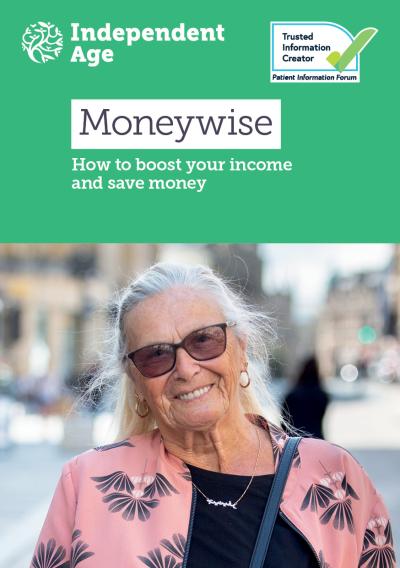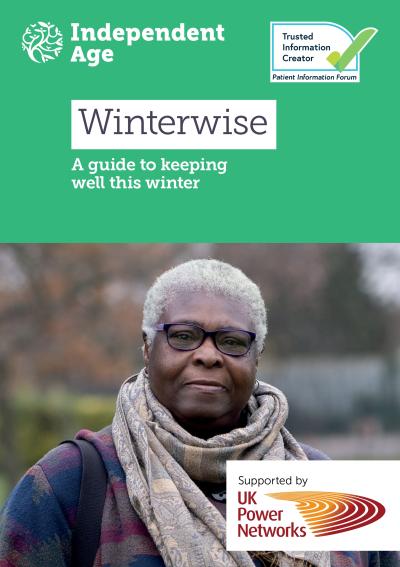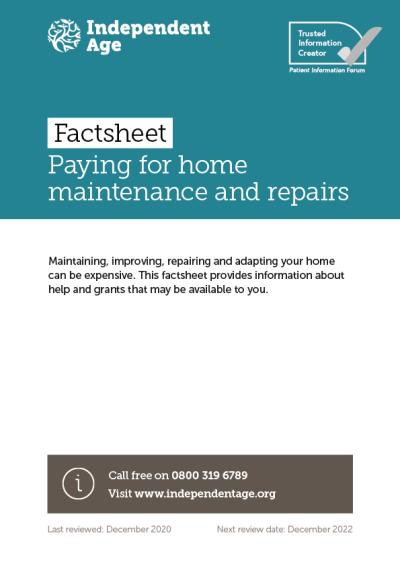Related publications

Moneywise

Winterwise

You may be concerned about your energy bills going up. There are things you can do to reduce the costs, and help available if you’re struggling to pay your energy bill.
Find out what help you can get to pay your energy bills, where you can get support and how to get the best energy deal.
Government help with your energy bills
Help from your energy supplier
From 1 April to 30 June 2024, Ofgem have capped energy prices at £1,690 for a typical household per year. Keep in mind that the actual amount you will pay will depend on how much energy you use, where you live and the type of meter you have. Visit Ofgem for more information.
Between 1 April and 30 June 2024, electricity prices will be capped at:
Gas prices will be capped at:
You may be able to get support with energy costs from your local council through:
In Wales, you need to contact the Discretionary Assistance Fund.
The help you can get varies, but may include energy saving packs, slow cookers, fuel vouchers or top-ups for prepayment meters, for example.
Make sure you’re claiming all the benefits you’re entitled to, such as the Winter Fuel Payment. Use our benefits calculator to find out what you can claim, or call our free Helpline (0800 319 6789).
If you’re struggling to pay your bills, contact your supplier. They must help you to work out a solution, such as a payment plan.
You can’t have your energy supply cut off between 1 October and 31 March if you are a pensioner and you live alone or with other pensioners, or if you live with a child under the age of 18. Anyone who is eligible for the Priority Services Register is also protected.
Some energy suppliers offer grants and other financial help to vulnerable customers. You don’t necessarily have to be with that supplier to qualify. Our Extra help with essential costs if you're on a low income factsheet has more details.
You may be able to get free advice on things like energy saving, how to apply for grants and ways to reduce your bills from organisations such as:
You may need a referral from an advice service like Independent Age before you can get support. Contact our Helpline for more information.
You could also ask for help from Green Doctors. They’re trained energy efficiency experts who can visit you at home and talk to you about ways you can save more heat in your home and deal with problems such as mould or damp. They can also help you to access other support, such as emergency heating. Their services are free.
If you’re living with a terminal illness or caring for someone who is and you’re worried about energy bills, you can call Marie Curie’s Support Line and ask to speak to one of their dedicated Energy Support Officers.
If your home is insulated poorly, you may be able to free or cheaper insulation from the Great British Insulation Scheme.
You can find out if you qualify for any other local or national energy grant schemes at Gov.uk or Home Energy Scotland.
You could make savings if you:
You can find more tips at Energy Saving Trust and Help for Households.
Smart meters send readings directly to your energy supplier, so you will be charged for the energy you’ve used, rather than an estimated amount. They come with an in-home display, which shows you how much energy you’re using and what it costs in real time.
A smart meter will not necessarily save you money, but it may help you to budget better and manage your energy use. You may also be able to get a better tariff. If you need to save money straightaway, it’s best to look into other options, such as checking you’re on the best tariff or if you qualify for any benefits.
Contact your energy supplier to find out more or to ask for a smart meter. They will not charge you to install one. All suppliers must offer smart meters, but you do not have to have one – it’s your choice.
For more information on smart meters, visit Ofgem.
Different energy deals are known as tariffs and there are many types. The most common are:
Fixed and capped tariffs are usually the cheapest and can help you to budget better, but there may be a fee if you want to leave the contract early. There is no end date with a standard or variable tariff and no exit fee if you switch.
If you think you’re paying too much for your energy bill, contact your current supplier to make sure you’re on the best tariff for you. They must tell you about their cheapest tariff and how much money you could save.
You may pay less if you pay by direct debit or manage your account online. Check any deals or discounts carefully and consider the service offered by the supplier.
Good to know
The energy market is currently going through a turbulent time. Because many energy companies are struggling, you won't find as many tariffs as normal. If you don’t find a better tariff than the one you’re on, it’s probably better to wait until deals are available again.
There are three basic steps to switching energy supplier:
It’s a fairly simple process, but it can seem daunting. You need to make sure you have the right information before you begin.
Understand your bill
Before you start, it's helpful to get a clear picture of what you need and what's on offer.
You should check how much energy you use. Your energy supplier must give you personalised information about your bill that explains what tariff you’re on, your energy use and details of any exit fees.
Compare prices
The best way to compare prices and deals is by using price comparison websites. You should check two or three. Some of them have been accredited by Ofgem. Visit MoneyHelper for advice on how to find the best deals.
Be wary of salespeople who offer deals on your doorstep or over the phone. Don’t be pressured into signing anything and take your time to consider any offers. It’s completely fine to say no to an offer.
If you find the deals on offer confusing, you can get help from your local Citizens Advice.
How to switch energy supplier
You can switch online or over the phone. You just tell the new supplier you want to switch and they'll contact your current supplier to organise the change.
You’ll need:
You may also need your Meter Point Access Number (MPAN) and your Meter Point Reference Number (MPRN). You’ll find most of this information on your bill.
There is a 14-day cooling off period in case you change your mind – this starts the day after you’ve registered to switch. If you cancel during this period, you’ll stay with your current supplier. Your switch should happen within five working days after your cooling off period ends. If it does not happen within 15 working days, you should be able to claim £30 compensation from your new supplier.
Some suppliers have signed up to a voluntary list of commitments called the Energy Switch Guarantee, which should make switching easier. Check to see if your supplier has signed up.
Make sure you take a meter reading the day before you switch. You should receive a final bill from your current supplier within six weeks. If they owe you any money, you should get a refund soon after that.
If a supplier offers to reduce your direct debit, this doesn’t mean they‘re reducing the amount you pay for your energy. If you use more energy than your direct debit covers, you could end up with a big bill later.
You could lose your Warm Home Discount if you switch to a smaller supplier. Suppliers with more than 150,000 customers are legally obliged to offer this, so check before you switch. You can find a list of suppliers that are part of the discount scheme on Gov.uk.
You might not be able to switch if you:
If you are on a fixed tariff, keep in mind that you might have to pay an exit fee when you switch.
Don’t ignore any debt recovery letters. If you’re in debt, get advice. You can still look for a better deal on your energy, which could make it easier to repay what you owe. Citizens Advice has more information about how to switch energy supplier if you’re in debt.

If you need help with paying your energy bills or switching energy suppliers, contact:
You can find more information about switching tariff or energy supplier at Ofgem.